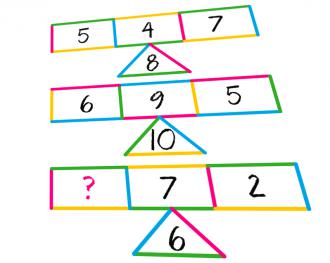MATH PUZZLE: Can you replace...
MATH PUZZLE: Can you replace the question mark with a number?Correct answers: 319
The first user who solved this task is Donya Sayah30.
#brainteasers #math #riddles

A doctor in a teaching hospita...
A doctor in a teaching hospital was discussing an X-ray with his students.
“This patient has been walking with a pronounced limp for some time,” he said. “The X-ray shows us his fibula and tibia are radically arched.” He pointed to a student. “You…what would you do in this case?” “Well, gee!” said student. I guess I’d limp, too.”
“This patient has been walking with a pronounced limp for some time,” he said. “The X-ray shows us his fibula and tibia are radically arched.” He pointed to a student. “You…what would you do in this case?” “Well, gee!” said student. I guess I’d limp, too.”

